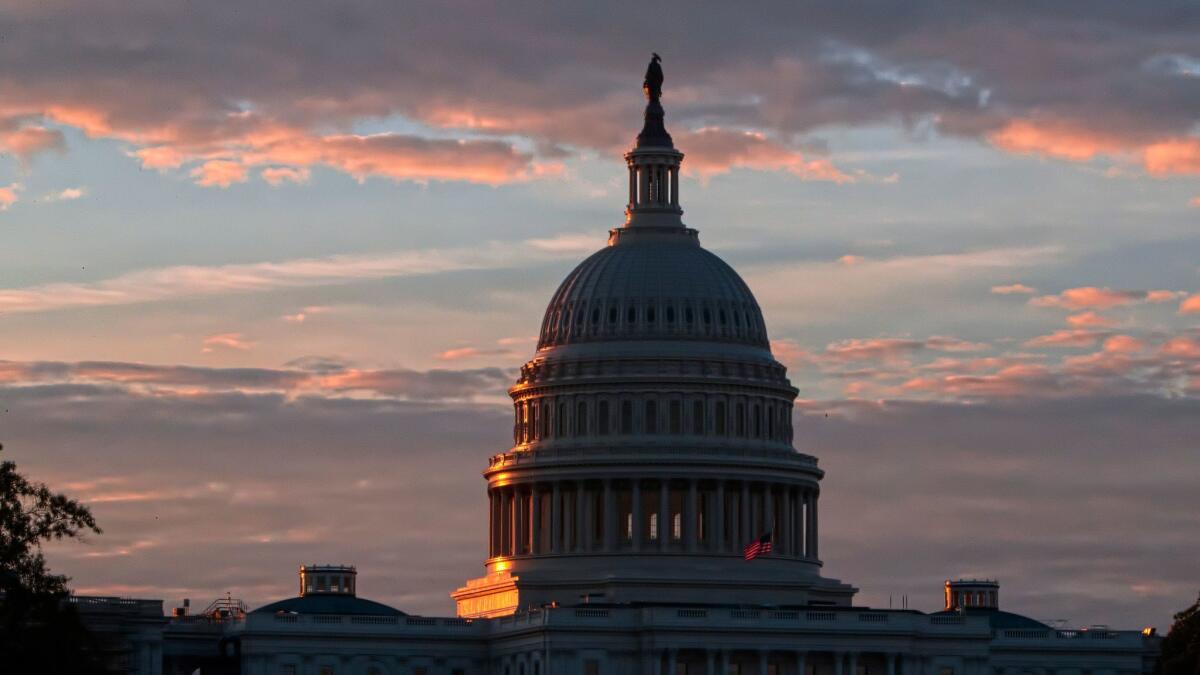The government shutdown has begun. Here’s what you need to know.

Lawmakers had until Friday at midnight to pass legislation to avert a government shutdown. But the negotiations failed to prevent what became the first government shutdown since 2013.
Here’s what that means.
Why would the government shut down?
Every year, Congress has to approve laws, known as appropriations, that provide money for federal agencies. Under federal law, if an agency does not have an appropriation law in force, it can’t spend money, so it has to close.
The new budget year began on Oct. 1 without agreement on the appropriations bills. Since then, lawmakers have passed a series of stopgap measures to temporarily fund government operations. The most recent one extended the shutdown deadline to Jan. 19.
House Republicans unveiled another measure to extend the deadline on Wednesday, but passage is uncertain because the bill fails to include action on the Dream Act to protect young immigrants from deportation.
Do all government programs stop in the event of a shutdown?
No. Here are the big categories that don’t:
- Programs that don’t require annual appropriations. That group, which includes Social Security, Medicare and other so-called entitlements, continue without interruption.
- Those entailing functions “necessary to protect life or property.” Law enforcement, the military, intelligence agencies and foreign embassies all will stay open.
- Some programs that have other sources of money that will allow them to function for a while. Courts, for example, can spend money they have collected through fines and fees, funds that would allow them to keep functioning for a while.
- The U.S. Postal Service. It’s a quasi-independent entity and does not depend on annual appropriations, so its business will continue as usual.
What are some examples of government offices that would close?
- Federal parks and monuments and federally owned museums, such as the Smithsonian. Those are probably the most visible federal activities affected by the shutdown.
- Offices overseas that give visas to foreigners hoping to visit the United States, many federal regulatory agencies, IRS call centers that provide assistance to taxpayers and most offices that handle federal grants and contracts will all close.
Seems like a lot of things that directly affect individuals wouldn’t be affected by a shutdown. Is that correct?
Right. That’s a fundamental truth about the federal government. State and local governments provide a lot of services to people -- schools, highways, water, sanitation and the like are all state and local responsibilities. The federal government handles a few huge benefit programs, which, as we noted, are not affected. But most of what the federal government does in domestic policy -- overseeing grants and contracts and regulating businesses, for example, remains at least one step removed from everyday life.
What about federal workers?
Hundreds of thousands of federal civilian workers would be furloughed. They would not be paid during the shutdown. The last time the government shut down, in 2013, Congress approved retroactive pay for workers who were furloughed, but there’s no guarantee that would happen.
What impact would this have on the economy?
A lot depends on how long a shutdown lasts. If the duration is only a few days, the economic impact will be small. But the impact builds with time. The tourism industry will be among the first hit because of the closure of parks and the inability of foreign tourists to get visas.
The 2013 shutdown, which lasted for 16 days, cost U.S. taxpayers $24 billion and reduced projected fourth-quarter gross domestic product growth from 3% to 2.4%, according to estimates by Standard & Poor's.
Start your day right
Sign up for Essential California for news, features and recommendations from the L.A. Times and beyond in your inbox six days a week.
You may occasionally receive promotional content from the Los Angeles Times.



